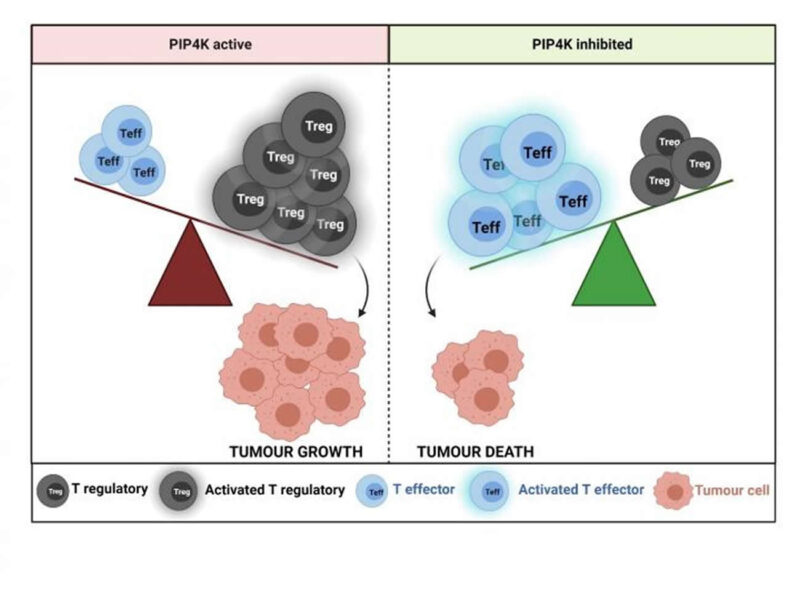A new treatment could be developed that improves the immune system’s ability in the body to find and destroy cancer cells. Scientists have discovered a way to inhibit the activity of certain cells that regulate the immune system. This can allow other immune cells to attack cancer patients’ tumors.
“A patient’s immune system is more than able to detect and remove cancer cells and immunotherapy has recently emerged as a novel therapy for many different types of cancers.” Explained Nullin Divecha, Professor of Cell Signalling at the University of Southampton who led the study. “However, cancer cells can generate a microenvironment within the tumor that stops the immune system from working thereby limiting the general use and success of immunotherapy,” he continued.
A group of cells known as Teffector cells (Teffs) is responsible for part of the immune system’s detection and removal of cancer cells. Other T cells, known as T-regulatory cell or Tregs, play a part in how well Teff cells detect and remove cancer cells. Tregs interact with Teff cell membranes and produce molecules that reduce their ability to function properly.
Prof Divecha said, “Tregs carry out an important function in the human body because without them, the immune system can run out of control and attack normal cells of the body. However, in cancer patients we need to give the Teff cells more freedom to carry out their job.”
Tumor cells release molecules that attract and accumulate Tregs. This further reduces the activity and function Teff cells. Although there are mechanisms to inhibit Treg cells, they are not as effective as Teff cells.
Researchers from the University of Southampton, and the National Institute of Molecular Genetics (Milan) published a new study in the journal Proceedings of The National Academy of Sciences of America. It showed that PIP4K, a family of enzymes found in cells, could be used to inhibit Tregs, without affecting Teffs.
Researchers isolated Tregs from healthy donors, and used genetic technology for suppressing the production of PIP4K proteins. The researchers discovered that Treg cells were unable to respond to immune signals and grow normally. This would prevent them from blocking Teff cell growth.
Importantly, their activity was not affected by the loss of enzymes from Teff cells.
The experimental research was conducted by Dr. Alessandro Poli.
The development of inhibitory molecules is necessary to inhibit PIP4K in order to make it a therapeutic option for patients. “Towards this end we show that treatment with a drug like inhibitor of PIP4K could enable the immune system to function more strongly and be better equipped to destroy tumour cells.”
Source: https://www.pnas.org/

